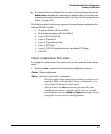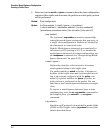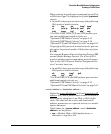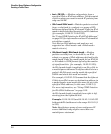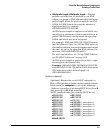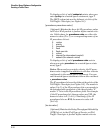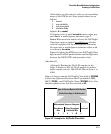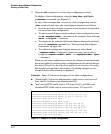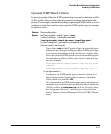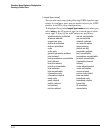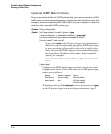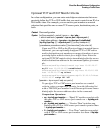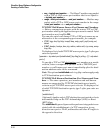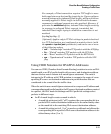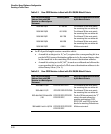
Classifier-Based Software Configuration
Creating a Traffic Class
Optional ICMP Match Criteria
To more precisely define the ICMP packets that you want to match in an IPv4
or IPv6 traffic class, use the optional parameter settings described in this
section. For example, instead of matching or ignoring all ICMP traffic, you can
configure a class that matches only a specific ICMP packet type by entering
its numeric value.
Context: Class configuration
Syntax: [no] [seq-number] < match | ignore > icmp
< source-address > < destination-address >
[ icmp-type-number | icmpv4-type-name | icmpv6-type-name ]
[ ip-dscp codepoint ] [ precedence precedence-value ]
[ tos tos-value ] [ vlan vlan-id ]
If you enter icmp as the IP protocol type in a match/ignore
statement, you can optionally specify an ICMP packet type
to more precisely define match criteria for a traffic class.
Enter the optional ICMP match criteria immediately after
the destination address (DA) value in the command syn-
tax; for example:
ProCurve(config-class)# match icmp any any host-
unknown
ProCurve(config-class)# match icmp any any 3 7
[ icmp-type-number ]
Configures an ICMP packet type as match criteria in a
class configuration by entering its numeric identifier.
Valid values are from 0 to 255.
For information on ICMP packet-type names and numeric
identifiers, go to the Internet Assigned Numbers Authority
(IANA) website at www.iana.com, click on “Protocol Num-
ber Assignment Services”, and then go to the selections
under “Internet Control Message Protocol (ICMP) Param-
eters”.
9-13



